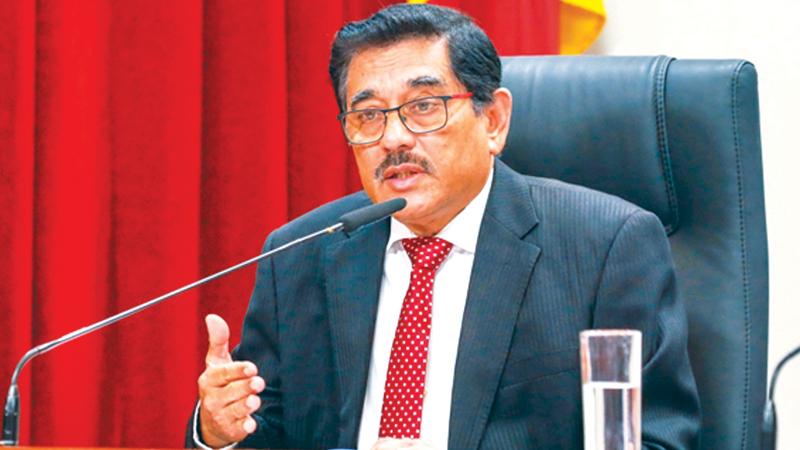
Central Bank Governor Dr. Nandalal Weerasinghe said that it was vital to protect the banking sector as a collapse of the country’s banking sector would have catastrophic consequences. He assured that the EPF funds already accumulated would not be touched and also guaranteed a minimum nine percent interest for EPF.
Dr. Weerasinghe told a media briefing on Domestic Debt Optimisation (DDO) at the Presidential Media Centre (PMC) on Thursday (29) that the banking system would not be burdened any further as it already contributes to the Treasury and economy through taxes of over 50 percent. He gave a firm assurance that the safety of 57 million deposits will be upheld.
The CB Governor highlighted the severe repercussions that would result from a collapse in the country’s banking sector. To prevent such a scenario, Friday (June 30), was declared a bank holiday until the Parliament approves the restructuring of local debt.
Dr. Weerasinghe said to achieve a sustainable level of the Government’s domestic debt, we must work towards stabilising the current criteria within a 10-year timeframe, as agreed upon with the International Monetary Fund (IMF). For instance, by the end of 2022, the public debt as a percentage of the Gross Domestic Product (GDP) stood at 128 percent. “However, our target is to reduce it to below 95 percent by 2032, which is the first criterion.
The second criterion involves reducing the Government’s total financing requirement, currently at 34.6 percent of the GDP annually, to an average level of 13 percent or lower during the five- year-period from 2027-2032,” he said.
The third criterion pertains to foreign debt servicing, which currently accounts for 9.4 percent of the GDP. “Our aim is to bring it down to 4.5 percent from 2027-2032. Achieving these goals will lead to a reduction of US$ 16.9 billion in the relief required to bridge the external financing gap,” he said.
He said through the restructuring of local debts, the aim is to reduce the Government’s gross debt burden and meet its financial needs. If successfully implemented, this would result in a reduction of public debt as a percentage of the Gross Domestic Product, bringing it down to 90 percent.
Dr. Weerasinghe said currently, there is Rs. 4.1 trillion in Treasury Bills, with 62.4 percent held by the Central Bank of Sri Lanka (CBSL). At present, there is Rs. 8.7 trillion in Treasury Bonds, with 36.5 percent held by the superannuation funds and approximately 36 percent held by commercial banks. The remaining portion is owned by insurance companies and private individuals.
He said, “Protecting the banking system and ensuring the safety of depositors’ funds are crucial responsibilities. The banking system plays a vital role in the economy, as evidenced by the 57 million bank accounts holding deposits from a population of around 22 million. Therefore, the foremost effort is to protect the funds of depositors of the 57 million accounts without harming the banking system, as it would have the greatest social impact. Consequently, the banks should not be further burdened.”
Finance Ministry Secretary, Mahinda Siriwardena said the domestic debt restructuring proposal has been submitted to the Cabinet and subsequently approved. It would be submitted to Parliament and was expected to receive approval yesterday, Saturday, July 1.
It is widely acknowledged that public debt restructuring is a crucial matter, especially considering the IMF’s declaration of Sri Lanka’s unsustainable debt. This restructuring involves both domestic and foreign loans.
The President’s Senior Economic Advisor Dr. R.H.S. Samaratunga said the Government has already implemented policies on various matters apart from debt restructuring. The total domestic debt discussed today amounts to US$ 42.1 billion, out of which US$ 19.8 billion will be allocated for restructuring. This includes debt owed to the CBSL, commercial banks, other banks, the Employees Provident Fund (EPF), and four other institutions that have provided loans to the Government.
